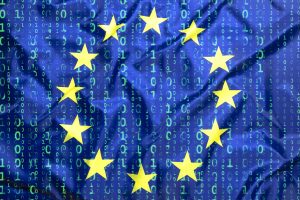Oliver Süme: “Europe needs a comprehensive digital policy overview – clear, consistent and applicable”
The EU Commission is planning a comprehensive reorganisation of its digital laws. eco – Association of the Internet Industry expressly welcomes the approach and views the “Digital Omnibus” as an opportunity for more modern, clearer digital regulation. The reform package aims to consolidate, update and better align key European regulatory frameworks, including the GDPR, the Data Act and the AI Act. The goal is to reduce bureaucracy, clarify interfaces and provide more guidance for both companies and public authorities. The responsible Vice-President Henna Virkkunen will present the Commission’s proposals in Brussels this Wednesday and explain them today at the Digital Summit in Berlin.
“The Digital Omnibus offers a good opportunity to make Europe’s digital rules clearer, more understandable and more practical,” says Oliver Süme, Chair of the Board of eco – Association of the Internet Industry. “What’s important is that the result does not create new complexity, but produces a coherent overall picture.”
A central element of the reform project is the planned streamlining of data law. In the future, the GDPR and Data Act are to serve as the only main pillars. The Free Flow of Data and the Data Governance Act would be eliminated. Such streamlining would significantly reduce the multitude of parallel requirements and create greater legal certainty. eco also sees a high need for alignment in the area of cybersecurity – for example, between NIS2, the Cybersecurity Act and the Cyber Resilience Act. Standardised processes and a consistent reporting system could significantly reduce the burden on companies and free up resources for genuine security measures.
eco views the planned revision of the GDPR positively, but emphasises the necessity for consistent, practicable application. Research, industry and AI development require reliable and clearly manageable framework conditions. In implementing the AI Act, the association also calls for clear guidance and planning security, particularly for small and medium-sized enterprises (SMEs).
Additionally, eco welcomes the planned strengthening of a Europe-wide interoperable digital identity and a European business wallet, which could generate additional momentum, particularly in the B2B sector.
At the same time, the association points out that many central regulations are only just beginning to be implemented. “Right now, it’s especially important to time changes well,” explains Süme. “A ‘stop the clock’ approach – letting rules take effect first, then making targeted adjustments – creates planning security and avoids misdevelopments.”
Süme concludes: “The Digital Omnibus can significantly advance European digital policy. The prerequisite is a clear focus on simplification, transparency and practical application.”




